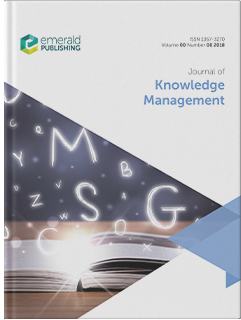
Journal of Knowledge Management
Before you start
For queries relating to the status of your paper pre decision, please contact the Editor or Journal Editorial Office. For queries post acceptance, please contact the Supplier Project Manager. These details can be found in the Editorial Team section.
Author responsibilities
Our goal is to provide you with a professional and courteous experience at each stage of the review and publication process. There are also some responsibilities that sit with you as the author. Our expectation is that you will:
- Respond swiftly to any queries during the publication process.
- Be accountable for all aspects of your work. This includes investigating and resolving any questions about accuracy or research integrity
- Treat communications between you and the journal editor as confidential until an editorial decision has been made.
- Read about our research ethics for authorship. These state that you must:
- Include anyone who has made a substantial and meaningful contribution to the submission (anyone else involved in the paper should be listed in the acknowledgements).
- Exclude anyone who hasn’t contributed to the paper, or who has chosen not to be associated with the research.
- In accordance with COPE’s position statement on AI tools, Large Language Models cannot be credited with authorship as they are incapable of conceptualising a research design without human direction and cannot be accountable for the integrity, originality, and validity of the published work. The author(s) must describe the content created or modified as well as appropriately cite the name and version of the AI tool used; any additional works drawn on by the AI tool should also be appropriately cited and referenced. Standard tools that are used to improve spelling and grammar are not included within the parameters of this guidance. The Editor and Publisher reserve the right to determine whether the use of an AI tool is permissible.
- If your article involves human participants, you must ensure you have considered whether or not you require ethical approval for your research, and include this information as part of your submission. Find out more about informed consent.
Generative AI usage key principles
- Copywriting any part of an article using a generative AI tool/LLM would not be permissible, including the generation of the abstract or the literature review, for as per Emerald’s authorship criteria, the author(s) must be responsible for the work and accountable for its accuracy, integrity, and validity.
- The generation or reporting of results using a generative AI tool/LLM is not permissible, for as per Emerald’s authorship criteria, the author(s) must be responsible for the creation and interpretation of their work and accountable for its accuracy, integrity, and validity.
- The in-text reporting of statistics using a generative AI tool/LLM is not permissible due to concerns over the authenticity, integrity, and validity of the data produced, although the use of such a tool to aid in the analysis of the work would be permissible.
- Copy-editing an article using a generative AI tool/LLM in order to improve its language and readability would be permissible as this mirrors standard tools already employed to improve spelling and grammar, and uses existing author-created material, rather than generating wholly new content, while the author(s) remains responsible for the original work.
- The submission and publication of images created by AI tools or large-scale generative models is not permitted.
Research and publishing ethics
Our editors and employees work hard to ensure the content we publish is ethically sound. To help us achieve that goal, we closely follow the advice laid out in the guidelines and flowcharts on the COPE (Committee on Publication Ethics) website.
We have also developed our research and publishing ethics guidelines. If you haven’t already read these, we urge you to do so – they will help you avoid the most common publishing ethics issues.
A few key points:
- Any manuscript you submit to this journal should be original. That means it should not have been published before in its current, or similar, form. Exceptions to this rule are outlined in our pre-print and conference paper policies. If any substantial element of your paper has been previously published, you need to declare this to the journal editor upon submission. Please note, the journal editor may use Crossref Similarity Check to check on the originality of submissions received. This service compares submissions against a database of 49 million works from 800 scholarly publishers.
- Your work should not have been submitted elsewhere and should not be under consideration by any other publication.
- If you have a conflict of interest, you must declare it upon submission; this allows the editor to decide how they would like to proceed. Read about conflict of interest in our research and publishing ethics guidelines.
- By submitting your work to Emerald, you are guaranteeing that the work is not in infringement of any existing copyright.
Third party copyright permissions
Prior to article submission, you need to ensure you’ve applied for, and received, written permission to use any material in your manuscript that has been created by a third party. Please note, we are unable to publish any article that still has permissions pending. The rights we require are:
- Non-exclusive rights to reproduce the material in the article or book chapter.
- Print and electronic rights.
- Worldwide English-language rights.
- To use the material for the life of the work. That means there should be no time restrictions on its re-use e.g. a one-year licence.
We are a member of the International Association of Scientific, Technical, and Medical Publishers (STM) and participate in the STM permissions guidelines, a reciprocal free exchange of material with other STM publishers. In some cases, this may mean that you don’t need permission to re-use content. If so, please highlight this at the submission stage.
Please take a few moments to read our guide to publishing permissions to ensure you have met all the requirements, so that we can process your submission without delay.
Open access submissions and information
All our journals currently offer two open access (OA) publishing paths; gold open access and green open access.
If you would like to, or are required to, make the branded publisher PDF (also known as the version of record) freely available immediately upon publication, you can select the gold open access route once your paper is accepted.
If you’ve chosen to publish gold open access, this is the point you will be asked to pay the APC (article processing charge). This varies per journal and can be found on our APC price list or on the editorial system at the point of submission. Your article will be published with a Creative Commons CC BY 4.0 user licence, which outlines how readers can reuse your work.
Alternatively, if you would like to, or are required to, publish open access but your funding doesn’t cover the cost of the APC, you can choose the green open access, or self-archiving, route. As soon as your article is published, you can make the author accepted manuscript (the version accepted for publication) openly available, free from payment and embargo periods.
You can find out more about our open access routes, our APCs and waivers and read our FAQs on our open research page.
Transparency and Openness Promotion (TOP) guidelines
We are a signatory of the Transparency and Openness Promotion (TOP) Guidelines, a framework that supports the reproducibility of research through the adoption of transparent research practices. That means we encourage you to:
- Cite and fully reference all data, program code, and other methods in your article.
- Include persistent identifiers, such as a Digital Object Identifier (DOI), in references for datasets and program codes. Persistent identifiers ensure future access to unique published digital objects, such as a piece of text or datasets. Persistent identifiers are assigned to datasets by digital archives, such as institutional repositories and partners in the Data Preservation Alliance for the Social Sciences (Data-PASS).
- Follow appropriate international and national procedures with respect to data protection, rights to privacy and other ethical considerations, whenever you cite data. For further guidance please refer to our research and publishing ethics guidelines. For an example on how to cite datasets, please refer to the references section below.
Prepare your submission
Manuscript support services
We are pleased to partner with Editage, a platform that connects you with relevant experts in language support, translation, editing, visuals, consulting, and more. After you’ve agreed a fee, they will work with you to enhance your manuscript and get it submission-ready.
This is an optional service for authors who feel they need a little extra support. It does not guarantee your work will be accepted for review or publication.
Manuscript requirements
Before you submit your manuscript, it’s important you read and follow the guidelines below. You will also find some useful tips in our structure your journal submission how-to guide.
|
Format |
Article files should be provided in Microsoft Word format While you are welcome to submit a PDF of the document alongside the Word file, PDFs alone are not acceptable. LaTeX files can also be used but only if an accompanying PDF document is provided. Acceptable figure file types are listed further below. |
|
Article length / word count |
Research Articles should be between 7000 and 10000 words in length. This includes all text, for example, the structured abstract, references, all text in tables, and figures and appendices. Real Impact Research Articles should be between 5000 and 7000 words in length, including all text, for example, the structured abstract, references, all text in tables, and figures and appendices. Real Impact Viewpoint Articles should be between 3000 and 5000 words in length, including all text, for example, the structured abstract, references, all text in tables, and figures and appendices. Please allow 350 words for each figure or table. |
|
Article title |
A concisely worded title should be provided. |
|
Author details |
The names of all contributing authors should be added to the ScholarOne submission; please list them in the order in which you’d like them to be published. Each contributing author will need their own ScholarOne author account, from which we will extract the following details:
In multi-authored papers, it’s important that ALL authors that have made a significant contribution to the paper are listed. Those who have provided support but have not contributed to the research should be featured in an acknowledgements section. You should never include people who have not contributed to the paper or who don’t want to be associated with the research. Read about our research ethics for authorship. |
|
Biographies and acknowledgements |
If you want to include these items, save them in a separate Microsoft Word document and upload the file with your submission. Where they are included, a brief professional biography of not more than 100 words should be supplied for each named author. |
|
Research funding |
Your article must reference all sources of external research funding in the acknowledgements section. You should describe the role of the funder or financial sponsor in the entire research process, from study design to submission. |
|
Structured abstract |
All submissions must include a structured abstract, following the format outlined below. These four sub-headings and their accompanying explanations must always be included:
The following three sub-headings are optional and can be included, if applicable:
The maximum length of your abstract should be 250 words in total, including keywords and article classification (see the sections below). |
|
Keywords |
Your submission should include up to 12 appropriate and short keywords that capture the principal topics of the paper. Our Creating an SEO-friendly manuscript how to guide contains some practical guidance on choosing search-engine friendly keywords. Please note, while we will always try to use the keywords you’ve suggested, the in-house editorial team may replace some of them with matching terms to ensure consistency across publications and improve your article’s visibility. |
|
Article classification |
During the submission process, you will be asked to select a type for your paper; the options are listed below. If you don’t see an exact match, please choose the best fit:
You will also be asked to select a category for your paper. The options for this are listed below. If you don’t see an exact match, please choose the best fit: Research paper. Reports on any type of research undertaken by the author(s), including:
Viewpoint. Covers any paper where content is dependent on the author's opinion and interpretation. This includes journalistic and magazine-style pieces. Technical paper. Describes and evaluates technical products, processes or services. Real Impact Research Article. Conceptual studies or original research with primary or secondary data with interest to the real impact knowledge management community and through a higher critical real impact comment. Real Impact Viewpoint Article. Conceptual studies strongly tied to real impact situations or introducing exclusive viewpoints of hot and emerging real impact topics |
|
Headings |
Headings must be concise, with a clear indication of the required hierarchy. |
|
Notes/endnotes |
Notes or endnotes should only be used if absolutely necessary. They should be identified in the text by consecutive numbers enclosed in square brackets. These numbers should then be listed, and explained, at the end of the article. |
|
Figures |
All figures (charts, diagrams, line drawings, webpages/screenshots, and photographic images) should be submitted electronically. Both colour and black and white files are accepted.
|
|
Tables |
Tables should be typed and submitted in a separate file to the main body of the article. The position of each table should be clearly labelled in the main body of the article with corresponding labels clearly shown in the table file. Tables should be numbered consecutively in Roman numerals (e.g. I, II, etc.). |
|
Supplementary files |
Where tables, figures, appendices, and other additional content are supplementary to the article but not critical to the reader’s understanding of it, you can choose to host these supplementary files alongside your article on Insight, Emerald’s content hosting platform, or on an institutional or personal repository. All supplementary material must be submitted prior to acceptance. If you choose to host your supplementary files on Insight, you must submit these as separate files alongside your article. Files should be clearly labelled in such a way that makes it clear they are supplementary; Emerald recommends that the file name is descriptive and that it follows the format ‘Supplementary_material_appendix_1’ or ‘Supplementary tables’. All supplementary material must be mentioned at the appropriate moment in the main text of the article, there is no need to include the content of the file but only the file name. A link to the supplementary material will be added to the article during production, and the material will be made available alongside the main text of the article at the point of EarlyCite publication. Please note that Emerald will not make any changes to the material; it will not be copyedited, typeset, and authors will not receive proofs. Emerald therefore strongly recommends that you style all supplementary material ahead of acceptance of the article. Emerald Insight can host the following file types and extensions:
If you choose to use an institutional or personal repository, you should ensure that the supplementary material is hosted on the repository ahead of submission, and then include a link only to the repository within the article. It is the responsibility of the submitting author to ensure that the material is free to access and that it remains permanently available. Please note that extensive supplementary material may be subject to peer review; this is at the discretion of the journal Editor and dependent on the content of the material (for example, whether including it would support the reviewer making a decision on the article during the peer review process). |
|
References |
All references in your manuscript must be formatted using one of the recognised Harvard styles. You are welcome to use the Harvard style Emerald has adopted – we’ve provided a detailed guide below. Want to use a different Harvard style? That’s fine, our typesetters will make any necessary changes to your manuscript if it is accepted. Please ensure you check all your citations for completeness, accuracy and consistency. Emerald’s Harvard referencing style References to other publications in your text should be written as follows:
A few other style points. These apply to both the main body of text and your final list of references.
At the end of your paper, please supply a reference list in alphabetical order using the style guidelines below. Where a DOI is available, this should be included at the end of the reference. |
|
For books |
Surname, initials (year), title of book, publisher, place of publication. e.g. Harrow, R. (2005), No Place to Hide, Simon & Schuster, New York, NY. |
|
For book chapters |
Surname, initials (year), "chapter title", editor's surname, initials (Ed.), title of book, publisher, place of publication, page numbers. e.g. Calabrese, F.A. (2005), "The early pathways: theory to practice – a continuum", Stankosky, M. (Ed.), Creating the Discipline of Knowledge Management, Elsevier, New York, NY, pp.15-20. |
|
For journals |
Surname, initials (year), "title of article", journal name, volume issue, page numbers. e.g. Capizzi, M.T. and Ferguson, R. (2005), "Loyalty trends for the twenty-first century", Journal of Consumer Marketing, Vol. 22 No. 2, pp.72-80. |
|
For published |
Surname, initials (year of publication), "title of paper", in editor’s surname, initials (Ed.), title of published proceeding which may include place and date(s) held, publisher, place of publication, page numbers. e.g. Wilde, S. and Cox, C. (2008), “Principal factors contributing to the competitiveness of tourism destinations at varying stages of development”, in Richardson, S., Fredline, L., Patiar A., & Ternel, M. (Ed.s), CAUTHE 2008: Where the 'bloody hell' are we?, Griffith University, Gold Coast, Qld, pp.115-118. |
|
For unpublished |
Surname, initials (year), "title of paper", paper presented at [name of conference], [date of conference], [place of conference], available at: URL if freely available on the internet (accessed date). e.g. Aumueller, D. (2005), "Semantic authoring and retrieval within a wiki", paper presented at the European Semantic Web Conference (ESWC), 29 May-1 June, Heraklion, Crete, available at: http://dbs.uni-leipzig.de/file/aumueller05wiksar.pdf (accessed 20 February 2007). |
|
For working papers |
Surname, initials (year), "title of article", working paper [number if available], institution or organization, place of organization, date. e.g. Moizer, P. (2003), "How published academic research can inform policy decisions: the case of mandatory rotation of audit appointments", working paper, Leeds University Business School, University of Leeds, Leeds, 28 March. |
|
For encyclopaedia entries |
Title of encyclopaedia (year), "title of entry", volume, edition, title of encyclopaedia, publisher, place of publication, page numbers. e.g. Encyclopaedia Britannica (1926), "Psychology of culture contact", Vol. 1, 13th ed., Encyclopaedia Britannica, London and New York, NY, pp.765-771. (for authored entries, please refer to book chapter guidelines above) |
|
For newspaper |
Surname, initials (year), "article title", newspaper, date, page numbers. e.g. Smith, A. (2008), "Money for old rope", Daily News, 21 January, pp.1, 3-4. |
|
For newspaper |
Newspaper (year), "article title", date, page numbers. e.g. Daily News (2008), "Small change", 2 February, p.7. |
|
For archival or other unpublished sources |
Surname, initials (year), "title of document", unpublished manuscript, collection name, inventory record, name of archive, location of archive. e.g. Litman, S. (1902), "Mechanism & Technique of Commerce", unpublished manuscript, Simon Litman Papers, Record series 9/5/29 Box 3, University of Illinois Archives, Urbana-Champaign, IL. |
|
For electronic sources |
If available online, the full URL should be supplied at the end of the reference, as well as the date that the resource was accessed. Surname, initials (year), “title of electronic source”, available at: persistent URL (accessed date month year). e.g. Weida, S. and Stolley, K. (2013), “Developing strong thesis statements”, available at: https://owl.english.purdue.edu/owl/resource/588/1/ (accessed 20 June 2018) Standalone URLs, i.e. those without an author or date, should be included either inside parentheses within the main text, or preferably set as a note (Roman numeral within square brackets within text followed by the full URL address at the end of the paper). |
|
For data |
Surname, initials (year), title of dataset, name of data repository, available at: persistent URL, (accessed date month year). e.g. Campbell, A. and Kahn, R.L. (2015), American National Election Study, 1948, ICPSR07218-v4, Inter-university Consortium for Political and Social Research (distributor), Ann Arbor, MI, available at: https://doi.org/10.3886/ICPSR07218.v4 (accessed 20 June 2018) |
Submit your manuscript
There are a number of key steps you should follow to ensure a smooth and trouble-free submission.
Double check your manuscript
Before submitting your work, it is your responsibility to check that the manuscript is complete, grammatically correct, and without spelling or typographical errors. A few other important points:
- Give the journal aims and scope a final read. Is your manuscript definitely a good fit? If it isn’t, the editor may decline it without peer review.
- Does your manuscript comply with our research and publishing ethics guidelines?
- Have you cleared any necessary publishing permissions?
- Have you followed all the formatting requirements laid out in these author guidelines?
- Does the manuscript contain any information that might help the reviewer identify you? This could compromise the blind peer review process. A few tips:
- If you need to refer to your own work, use wording such as ‘previous research has demonstrated’ not ‘our previous research has demonstrated’.
- If you need to refer to your own, currently unpublished work, don’t include this work in the reference list.
- Any acknowledgments or author biographies should be uploaded as separate files.
- Carry out a final check to ensure that no author names appear anywhere in the manuscript. This includes in figures or captions.
You will find a helpful submission checklist on the website Think.Check.Submit.
The submission process
All manuscripts should be submitted through our editorial system by the corresponding author.
The only way to submit to the journal is through the journal’s ScholarOne site as accessed via the Emerald website, and not by email or through any third-party agent/company, journal representative, or website. Submissions should be done directly by the author(s) through the ScholarOne site and not via a third-party proxy on their behalf.
A separate author account is required for each journal you submit to. If this is your first time submitting to this journal, please choose the Create an account or Register now option in the editorial system. If you already have an Emerald login, you are welcome to reuse the existing username and password here.
Please note, the next time you log into the system, you will be asked for your username. This will be the email address you entered when you set up your account.
Don't forget to add your ORCiD ID during the submission process. It will be embedded in your published article, along with a link to the ORCiD registry allowing others to easily match you with your work.
Don’t have one yet? It only takes a few moments to register for a free ORCiD identifier.
Visit the ScholarOne support centre for further help and guidance.
What you can expect next
You will receive an automated email from the journal editor, confirming your successful submission. It will provide you with a manuscript number, which will be used in all future correspondence about your submission. If you have any reason to suspect the confirmation email you receive might be fraudulent, please contact our Rights team.
Post submission
Review and decision process
Each submission is checked by the editor. At this stage, they may choose to decline or unsubmit your manuscript if it doesn’t fit the journal aims and scope, or they feel the language/manuscript quality is too low.
If they think it might be suitable for the publication, they will send it to at least two independent referees for double blind peer review. Once these reviewers have provided their feedback, the editor may decide to accept your manuscript, request minor or major revisions, or decline your work.
This journal offers an article transfer service. If the editor decides to decline your manuscript, either before or after peer review, they may offer to transfer it to a more relevant Emerald journal in this field. If you accept, your ScholarOne author account, and the accounts of your co-authors, will automatically transfer to the new journal, along with your manuscript and any accompanying peer review reports. However, you will still need to log in to ScholarOne to complete the submission process using your existing username and password. While accepting a transfer does not guarantee the receiving journal will publish your work, an editor will only suggest a transfer if they feel your article is a good fit with the new title.
While all journals work to different timescales, the goal is that the editor will inform you of their first decision within 60 days.
During this period, we will send you automated updates on the progress of your manuscript via our submission system, or you can log in to check on the current status of your paper. Each time we contact you, we will quote the manuscript number you were given at the point of submission. If you receive an email that does not match these criteria, it could be fraudulent and we recommend you email [email protected].
If your submission is accepted
Open access
Once your paper is accepted, you will have the opportunity to indicate whether you would like to publish your paper via the gold open access route.
If you’ve chosen to publish gold open access, this is the point you will be asked to pay the APC (article processing charge). This varies per journal and can be found on our APC price list or on the editorial system at the point of submission. Your article will be published with a Creative Commons CC BY 4.0 user licence, which outlines how readers can reuse your work.
Copyright
All accepted authors are sent an email with a link to a licence form. This should be checked for accuracy, for example whether contact and affiliation details are up to date and your name is spelled correctly, and then returned to us electronically. If there is a reason why you can’t assign copyright to us, you should discuss this with your journal content editor. You will find their contact details on the editorial team section above.
Proofing and typesetting
Once we have received your completed licence form, the article will pass directly into the production process. We will carry out editorial checks, copyediting, and typesetting and then return proofs to you (if you are the corresponding author) for your review. This is your opportunity to correct any typographical errors, grammatical errors or incorrect author details. We can’t accept requests to rewrite texts at this stage.
When the page proofs are finalised, the fully typeset and proofed version of record is published online. This is referred to as the EarlyCite version. While an EarlyCite article has yet to be assigned to a volume or issue, it does have a digital object identifier (DOI) and is fully citable. It will be compiled into an issue according to the journal’s issue schedule, with papers being added by chronological date of publication.
How to share your paper
Visit our author rights page to find out how you can reuse and share your work.
To find tips on increasing the visibility of your published paper, read about how to promote your work.
Correcting inaccuracies in your published paper
Sometimes errors are made during the research, writing and publishing processes. When these issues arise, we have the option of withdrawing the paper or introducing a correction notice. Find out more about our article withdrawal and correction policies.
Need to make a change to the author list? See our frequently asked questions (FAQs) below.
Frequently asked questions
|
Is there a submission fee |
The only time we will ever ask you for money to publish in an Emerald journal is if you have chosen to publish via the gold open access route. You will be asked to pay an APC (article-processing charge) once your paper has been accepted (unless it is a sponsored open access journal), and never at submission. At no other time will you be asked to contribute financially towards your article’s publication, processing, or review. If you haven’t chosen gold open access and you receive an email that appears to be from Emerald, the journal, or a third party, asking you for payment to publish, please contact our support team via [email protected]. |
|
How can I become |
Please contact the editor for the journal, with a copy of your CV. You will find their contact details on the editorial team tab on this page. |
|
Who do I contact if I want to find out which volume and issue my accepted paper will appear in? |
Typically, papers are added to an issue according to their date of publication. If you would like to know in advance which issue your paper will appear in, please contact the content editor of the journal. You will find their contact details on the editorial team tab on this page. Once your paper has been published in an issue, you will be notified by email. |
|
Who do I contact if I have |
Please email the journal editor – you will find their contact details on the editorial team tab on this page. If you ever suspect an email you’ve received from Emerald might not be genuine, you are welcome to verify it with the content editor for the journal, whose contact details can be found on the editorial team tab on this page. Alternatively, you can email our Rights team. |
|
Is my paper suitable |
If you’ve read the aims and scope on the journal landing page and are still unsure whether your paper is suitable for the journal, please email the editor and include your paper's title and structured abstract. They will be able to advise on your manuscript’s suitability. You will find their contact details on the Editorial team tab on this page. |
|
How do I make a change to the list of authors once the manuscript has been submitted? |
Authorship and the order in which the authors are listed on the paper should be agreed prior to submission. We have a right first time policy on this and no changes can be made to the list once submitted. If you have made an error in the submission process, please email the Journal Editorial Office who will look into your request – you will find their contact details on the editorial team tab on this page. |
-
Editor-in-Chief
-
Manlio
Del Giudice
Pegaso Digital University - Italy
[email protected]
-
Manlio
Del Giudice
-
Managing Editor
-
Armando
Papa
University of Salerno - Italy
[email protected]
-
Armando
Papa
-
Senior Consulting Editors
-
Honig
Benson
McMaster University - Canada
-
Marcel
Bogers
University of Copenhagen, Denmark and University of California - Berkeley
-
Nick
Bontis
McMaster University - Canada
-
Sabri
Boubaker
EM Normandie Paris - France
-
Pawan
Budhwar
Aston Business School - UK
-
Elias G
Carayannis
GWU School of Business - USA
-
Steven
Cavaleri
Central Connecticut State University - USA
-
Sir
Cary L.
Cooper
Manchester Business School - UK
-
James A.
Cunningham
Northumbria University
-
Scott W.
Cunningham
Delft University of Technology - Netherlands
-
Alfredo
De Massis
Free University of Bozen-Bolzano, Italy & Lancaster University - UK
-
Naveen
Donthu
Georgia State University - USA
-
Yogesh
Dwivedi
Swansea University - UK
-
Leif
Edvinsson
Lund University - Sweden
-
Ajai
Gaur
Rutgers Business School - USA
-
Ari
Ginsberg
New York University - USA
-
Masaaki (Mike)
Kotabe
Temple University - USA
-
Vikas
Kumar
University of the West of England - UK
-
Jay
Liebowitz
Harrisburg University of Science and Technology - USA
-
Arvind
Malhotra
The University of North Carolina at Chapel Hill - USA
-
Jens
Mueller
The University of Waikato - New Zealand
-
Ikujiro
Nonaka
Hitotsubashi University - Japan
-
T.
Ramayah
University Sains Malaysia - Malaysia
-
Johan S.
Roos
Hult International Business School - UK
-
Scott
Shane
Case Western Reserve University - USA
-
Detmar
Straub
Temple University - USA
-
Hirotaka
Takeuchi
Graduate School of Business Administration, Harvard University - USA
-
Wim
Vanhaverbeke
Hasselt University - Belgium
-
Arup
Varma
Loyola University Chicago - USA
-
Demetris
Vrontis
University of Nicosia - Cyprus
-
Geoffrey
Wood
University of Essex - UK
-
Shaker
Zahra
University of Minnesota - USA
-
Maurizio
Zollo
Bocconi University and Sloan School MIT - Italy and USA
-
Georg
von Krogh
ETH Zurich - Switzerland
-
Honig
Benson
-
Special Issue Editors
-
Antonio Messeni
Petruzzelli
Beijing Normal University - China
-
Pedro
Soto-Acosta
University of Murcia - Spain
-
Antonio Messeni
Petruzzelli
-
Founding Editor
-
Rory L
Chase
Editor Emeritus, JIC/JKM and Managing Director, Teleos - UK
-
Rory L
Chase
-
Social Media Editor
-
Maria Teresa
Cuomo
Brunel University, UK and University of Salerno - Italy
-
Maria Teresa
Cuomo
-
Commissioning Editor
-
Charlotte
Eagles
Emerald Publishing
[email protected]
-
Charlotte
Eagles
-
Journal Editorial Office (For queries related to pre-acceptance)
-
Purnachandra
Padhy
Emerald Publishing
[email protected]
-
Purnachandra
Padhy
-
Supplier Project Manager (For queries related to post-acceptance)
-
Aarti
Kakade
Emerald Publishing
[email protected]
-
Aarti
Kakade
-
Global Real Impact Editor
-
Vijay
Pereira
NEOMA Business School, Reims Campus - France
-
Vijay
Pereira
-
Area Coordinating Real Impact Editor – Africa
-
Insaf
Khelladi
EMLV Business School - France
-
Insaf
Khelladi
-
Managing Regional Real Impact Editors – Africa
-
William
Degbey
University of Vaasa - Finland
-
Mourad
Oubrich
INPT, CIEMS - Morocco
-
William
Degbey
-
Area Coordinating Real Impact Editor – Asia
-
Tachia
Chin
Zhejiang University of Technology - People's Republic of China
-
Tachia
Chin
-
Managing Regional Real Impact Editors – Asia
-
Yunlong
Duan
Yunnan University of Finance and Economics - China
-
Kaliyan
Mathiyazhagan
Thiagarajar School of Management - India
-
Duc
Nguyen
EMLV Business School, France and Vietnam National University (Hanoi) - Vietnam
-
Yunlong
Duan
-
Area Coordinating Real Impact Editor - Europe
-
Mohammad (Moe)
Roohanifar
Manchester Metropolitan University - UK
-
Mohammad (Moe)
Roohanifar
-
Managing Regional Real Impact Editors – Europe
-
Juan Gabriel
Cegarra Navarro
Universidad Politécnica de Cartagena - Spain
-
Valentina
Cillo
Pegaso Digital University - Italy
-
Emanuel
Gomes
Universidade Nova - Portugal
-
Daniel Palacios
Marqés
Universitat Politécnica de València - Spain
-
Dirk
Meissner
HSE University - Russia
-
Juan Gabriel
Cegarra Navarro
-
Area Coordinating Real Impact Editor - North America
-
Merrill
Warkentin
Mississippi State University - USA
-
Merrill
Warkentin
-
Managing Regional Real Impact Editors – North America
-
Denise
Bedford
Georgetown University - USA
-
Vlad
Vaiman
California Lutheran University - USA
-
Denise
Bedford
-
Area Coordinating Real Impact Editor - Latin and South America
-
Bruno Brandão
Fischer
University of Campinas - Brazil
-
Bruno Brandão
Fischer
-
Managing Regional Real Impact Editors – Latin and South America
-
Fábio Lotti
Oliva
University of São Paulo - Brazil
-
Maciel M.
Queiroz
FGV EAESP - Brazil
-
Fábio Lotti
Oliva
-
Area Coordinating Real Impact Editor - Oceania
-
Hussain
Rammal
University of Adelaide - Australia
-
Hussain
Rammal
-
Managing Regional Real Impact Editors – Oceania
-
Kenneth
Husted
The University of Auckland Business School - New Zealand
-
Betina
Szkudlarek
University of Sydney - Australia
-
Kenneth
Husted
-
Editorial Board
-
Pervaiz
Akhtar
University of Aberdeen - UK
-
Tamar
Almor
The College of Management - Israel
-
Attour
Amel
Université Cote d’Azur - France
-
Lorenzo
Ardito
Politecnico di Bari - Italy
-
Ahmad
Arslan
University of Oulu - Finland
-
Constantin
Bratianu
Bucharest University of Economic Studies - Romania
-
Stefano
Bresciani
University of Turin - Italy
-
David F.J.
Campbell
University of Applied Arts Vienna - Austria
-
Paolo
Capolupo
Polytechnic University of Bari - Italy
-
Francesco
Cappa
University of Rome Campus Biomedico - Italy
-
Abraham
Carmeli
Tel-Aviv University - Israel
-
Sylvaine
Castellano
EM Normandie - France
-
Jin
Chen
Tsinghua University - People's Republic of China
-
Alton Y.K.
Chua
Nanyang Technological University - Singapore
-
Francesco
Ciampi
University of Florence - Italy
-
Marina
Dabić
University of Zagreb - Croatia
-
Assunta
Di Vaio
Università degli Studi di Napoli Parthenope - Italy
-
Holger
Ernst
WHU - Otto Beisheim School of Management - Germany
-
Monica
Fait
Pegaso Digital University - Italy
-
João J. M.
Ferreira
University of Beira Interior - Portugal
-
Fabio
Fiano
Pegaso Digital University - Italy
-
Raffaele
Filieri
Audencia Business School - France
-
Pantea
Foroudi
Brunel University London - UK
-
Alejandro G.
Frank
Universidade federal do Rio Grande do Sul - Brazil
-
Alexeis
Garcia-Perez
Coventry University - UK
-
Desiderio Juan
Garcìa Almeida
Universidad de Las Palmas de Gran Canaria - Spain
-
Marco
Greco
University of Cassino and Southern Lazio - Italy
-
Evangelos
Grigoroudis
School of Production Engineering and Management, Technical University of Crete - Greece
-
Stefan
Güldenberg
EHL Hospitality Business School Lausanne - Switzerland
-
Aurore
Haas
Paris Dauphine University - France
-
William S.
Harvey
University of Exeter Business School
-
Josef
Hofer-Alfeis
Owner & KM Consultant, Knowledge Management Consultancy - Germany
-
Lei
Huang
Zhejiang University of Technology - China
-
Ali
Intezari
University of Queensland - Australia
-
Alessio
Ishizaka
NEOMA Business School - France
-
Daniel
Jimenez-Jimenez
University of Murcia - Spain
-
Paulina
Junni
BI Norwegian Business School - Norway
-
Prasad
Kaipa
Kaipa Group - USA
-
Renata
Kaminska
University Côte d’Azur - France
-
Huda
Khan
University of Aberdeen - UK
-
Zaheer
Khan
University of Aberdeen - UK
-
Aino
Kianto
Lappeenranta University of Technology - Finland
-
Norris
Krueger
Entrepreneurship Northwest Boise, Idaho - USA
-
Patrick
Lambe
Visiting Professor, Bangkok University - Thailand
-
Pascal
Lievre
Université Clermont Auvergne - France
-
Yipeng
Liu
Henley Management School - UK
-
Ana Beatriz
Lopes de Sousa Jabbour
EM Normandie Business School - France
-
Remy
Magnier-Watanabe
Graduate School Of Business Sciences, University of Tsukuba - Japan
-
Ashish
Malik
The University of Newcastle - Australia
-
Micaela
Martinez-Costa
University of Murcia - Spain
-
Aurora
Martínez-Martínez
Polytechnic University of Cartagena - Spain
-
Nikolaos
Matsatsinis
Technical University of Crete - Greece
-
Rodney
McAdam
University of Ulster - UK
-
Anju
Mehta
North Carolina A&T State University - USA
-
Gregoris
Mentzas
National Technical University of Athens - Greece
-
Valerie
Merindol
Paris School of Business - France
-
Luiz
Montanheiro
Sheffield University - UK
-
Smitha R
Nair
University of East Anglia - UK
-
Muzamil
Naqshbandi
University of Dubai - United Arab Emirates
-
Melita
Nicotra
University of Catania - Italy
-
Umberto
Panniello
Polytechnic of Bari - Italy
-
Edna
Pasher
EPA Management Consultants - Israel
-
David
Pauleen
Massey University - New Zealand
-
Mirko
Perano
University of Salerno - Italy
-
Marta
Peris-Ortiz
Universitat Politècnica de València - Spain
-
Marco
Pironti
University of Turin - Italy
-
Simona
Popa
University of Murcia - Spain
-
Indu
Ramachandran
Texas State University - USA
-
Vincent
Ribière
IKI-SEA, Bangkok University - Thailand
-
Peter
Rodgers
University of Sheffield - UK
-
Paola
Rovelli
University of Bolzano - Italy
-
Jennifer
Rowley
Manchester Metropolitan University - UK
-
Veronica
Scuotto
University of Naples Federico II - Italy
-
Gianni
Sebastiano
Exprivia
-
Alexander
Serenko
Ontario Tech University - Canada
-
Piyush
Sharma
Curtin University - Australia
-
Amir
Shoham
Fox School of Business, Temple University, USA and The College of Management - Israel
-
Sanjay
Singh
University of Dundee School of Business - UK
-
Noemi
Sinkovics
Newcastle University - UK
-
David
Snowden
Cognitive Edge Pte Ltd - UK
-
Peter
Stokes
De Montfort University - UK
-
Nazim
Taskin
Massey University - New Zealand
-
Stefania
Testa
University of Genova - Italy
-
Ioannis
Thanos
Lancaster University - UK
-
Catherine
Thomas
University of Nice Sophia Antipolis - France
-
Eric
Tsui
The Hong Kong Polytechnic University - Hong Kong, China
-
Moshfique
Uddin
University of Leeds - UK
-
Antonio
Usai
University of Sassari - Italy
-
Richard
Vines
Agricultural Research Group, Department of Economic Development, Jobs, Transport and Resources, Government of Victoria - Australia
-
Chunhsien
Wang
National Chiayi University - Taiwan, China
-
Karl M.
Wiig
Knowledge Research Institute - USA
-
Tan
Yigitcanlar
Science and Engineering Faculty Queensland University of Technology Brisbane - Australia
-
David B.
Zoogah
Xavier University - USA
-
Constantin
Zopounidis
Technical University of Crete - Greece
-
Patricia Ordoñez
de Pablos
University of Oviedo - Spain
-
Pervaiz
Akhtar
Citation metrics
13.7
CiteScore 2023
13.7
CiteScore 2023
Further information
CiteScore is a simple way of measuring the citation impact of sources, such as journals.
Calculating the CiteScore is based on the number of citations to documents (articles, reviews, conference papers, book chapters, and data papers) by a journal over four years, divided by the number of the same document types indexed in Scopus and published in those same four years.
For more information and methodology visit the Scopus definition
12.3
CiteScore Tracker 2024
(updated monthly)
12.3
CiteScore Tracker 2024
(updated monthly)
Further information
CiteScore is a simple way of measuring the citation impact of sources, such as journals.
CiteScore Tracker is calculated in the same way as CiteScore, but for the current year rather than previous, complete years.
The CiteScore Tracker calculation is updated every month, as a current indication of a title's performance.
For more information and methodology visit the Scopus definition
6.60
2023 Impact Factor
6.60
2023 Impact Factor
Further information
The Journal Impact Factor is published each year by Clarivate Analytics. It is a measure of the number of times an average paper in a particular journal is cited during the preceding two years.
For more information and methodology see Clarivate Analytics
8.5
5-year Impact Factor (2023)
8.5
5-year Impact Factor (2023)
Further information
A base of five years may be more appropriate for journals in certain fields because the body of citations may not be large enough to make reasonable comparisons, or it may take longer than two years to publish and distribute leading to a longer period before others cite the work.
Actual value is intentionally only displayed for the most recent year. Earlier values are available in the Journal Citation Reports from Clarivate Analytics.
Publication timeline
Time to first decision
24
days
Time to first decision
24
days
Further information
Time to first decision, expressed in days, the "first decision" occurs when the journal’s editorial team reviews the peer reviewers’ comments and recommendations. Based on this feedback, they decide whether to accept, reject, or request revisions for the manuscript.
Data is taken from submissions between 1st June 2023 and 31st May 2024
Acceptance to publication
95
days
Acceptance to publication
95
days
Further information
Acceptance to publication, expressed in days, is the average time between when the journal’s editorial team decide whether to accept, reject, or request revisions for the manuscript and the date of publication in the journal.
Data is taken from the previous 12 months (Last updated July 2024)
Acceptance rate
8
%
Acceptance rate
8
%
Further information
The acceptance rate is a measurement of how many manuscripts a journal accepts for publication compared to the total number of manuscripts submitted expressed as a percentage %
Data is taken from submissions between 1st June 2023 and 31st May 2024.
Usage
Downloads
42370
Articles
Downloads
42370
Articles
Further information
This figure is the total amount of downloads for all articles published early cite in the last 12 months
(Last updated: July 2024)
This journal is abstracted and indexed by
- ACPHIS (A)
- Cabell's Management Directory
- CORE Rankings
- Current Contents/Social and Behavioral Sciences (CC/S&BS)
- Business Source Alumni Edition/ Business Source Complete/ Business Source Corporate Plus
- Business Source Elite/Business Source Premier (EBSCO)
- dblp Computer Science Bibliography
- CNRS 2017 (France)
- FNEGE 2016 Journals Ranking List (France)
- Fulltext Sources Online
- Information Sciences Abstracts
- INSPEC
- OCLC's Electronic Collections Online
- PsycINFO
- ReadCube Discover
- Scopus
- Social Sciences Citation Index (SSCI)
This journal is ranked by
- ANVUR Class A (Italy)
- ABDC 2016 (Australia)
- The Chartered Association of Business Schools' Academic Journal Guide (2)
- DEN 2017 (Denmark)
- CNRS 2017 (France)
- Federation of Management Societies of China
- HCERES 2017 (France)
- The Publication Forum (Finland)
- Thomson Reuters (ISI)
- Scopus
- VHB-JOURQUAL 3 (Germany)
- UQ 2011 (Australia)
Reviewer information
Peer review process
This journal engages in a double-anonymous peer review process, which strives to match the expertise of a reviewer with the submitted manuscript. Reviews are completed with evidence of thoughtful engagement with the manuscript, provide constructive feedback, and add value to the overall knowledge and information presented in the manuscript.
Mission
The mission of the peer review process is to achieve excellence and rigour in scholarly publications and research.
Vision
Our vision is to give voice to professionals in the subject area who contribute unique and diverse scholarly perspectives to the field.
Values
The journal values diverse perspectives from the field and reviewers who provide critical, constructive, and respectful feedback to authors. Reviewers come from a variety of organizations, careers, and backgrounds from around the world.
Ethics
All invitations to review, abstracts, manuscripts, and reviews should be kept confidential. Reviewers must not share their review or information about the review process with anyone without the agreement of the editors and authors involved, even after publication. This also applies to other reviewers’ “comments to author” which are shared with you on decision.

Resources to guide you through the review process
Discover practical tips and guidance on all aspects of peer review in our reviewers' section. See how being a reviewer could benefit your career, and discover what's involved in shaping a review.
Calls for papers
Human-artificial intelligence interactions in knowledge ecosystems
Journal of Knowledge Management
Introduction: Our world has entered into a new digital era riddled with unprecedent challenges consisting of deteriorating market uncertainty, cross-national conflicts, climate change, coupled with astonishing progress of ...
News
Thank you to the 2023 Reviewers
The publishing and editorial teams would like to thank the following, for their invaluable service as 2023 reviewers for this journal. We are very grateful for the contributions made. With their help, the journal has been able to publish such high...
Thank you to the 2022 Reviewers
The publishing and editorial teams would like to thank the following, for their invaluable service as 2022 reviewers for this journal. We are very grateful for the contributions made. With their help, the journal has been able to publish such high...
Thank you to the 2021 Reviewers
The publishing and editorial teams would like to thank the following, for their invaluable service as 2021 reviewers for this journal. We are very grateful for the contributions made. With their help, the journal has been able to publish such high...
Journal of Knowledge Management Emerald Literati Awards for Excellence 2021
We are pleased to announce the 2021 winners of the Journal of Knowledge Management Emerald Literati Awards for Excellence. The awards celebrate and reward the outstanding contributions of our authors, reviewers, and editorial team....
Real Impact Editors and Real Impact Articles
Scholars around the world are under increasing pressure to conduct, study and target their results towards a real impact on key stakeholders. This does not exclude business and management scholars, and does not solely r...
Literati awards

Journal of Knowledge Management - Literati Award Winners 2024
We are pleased to announce our 2024 Literati Award winners. Outstanding Paper Capitalizing online knowledge ...

Journal of Knowledge Management - Literati Award Winners 2023
We are pleased to announce our 2023 Literati Award winners. Outstanding Paper The impact of knowledge risk management ...

Journal of Knowledge Management - Literati Award Winners 2022
We are pleased to announce our 2022 Literati Award winners. Outstanding Paper The tensions of defining and d...

Journal of Knowledge Management - Literati Award Winners 2021
We are pleased to announce our 2021 Literati Award winners. Outstanding Paper The digital transformation of ...

Journal of Knowledge Management - Literati Awards Winners 2020
We are pleased to announce our 2020 Literati Award winners. Outstanding Paper Relationship between team culture and team performance...
The premiere choice for Knowledge Management (KM) scholars and practitioners. A leading journal publishing cutting-edge research with real impact and top-quality management studies on innovative KM strategies with applications to real-world situations.
eISSN: 1758-7484

Aims and scope
Journal of Knowledge Management (JKM) is a peer-reviewed publication dedicated to the exchange of the latest academic research and practical information on all aspects of managing knowledge in a wide range of organizations (SMEs, large corporations, MNCs, global firms). The journal publishes innovative, rigorous and original research and studies by academic, business and government contributors on strategies, tools, techniques and technologies for Knowledge Management.
JKM covers all the key issues in its field including:
- Developing an appropriate culture and communication strategy of knowledge management theories and practices
- Integrating strategic knowledge management and knowledge infrastructures into real-daily management situations
- Managing knowledge flows and practical applications into learning organizations
- Information organization and retrieval technologies for improving the quality of knowledge use inside innovative, worldwide firms
- Linking knowledge management to performance initiatives, to financial decisions and to asset management
- Retaining knowledge - human and intellectual capital
- Using information technology and systems to develop knowledge management within innovative enterprises
- Linking knowledge management to decision support systems
- Understanding customer knowledge management to support marketing processes
- Connecting knowledge management to innovation systems, trajectories and technological management forecasting
- Processing and understanding big data information to support management decision
- Measuring the value of knowledge already within an organization
- Discovering what lies beyond knowledge management in real-enterprise scenarios
- Understanding and explaining knowledge tools practices to applied computer science
Key benefits
As a subscriber to JKM, you will be able to:
- Advance your understanding of knowledge management as a management core competency
- Learn how to put knowledge management to work to gain competitive advantages for any kind of firm
- Explore implementation techniques of knowledge management formal strategies as well as of related managerial and IS tools
- Share knowledge through debate and information exchange
- Find out how to overcome the main barriers to knowledge management
- Benchmark your current knowledge management practices against best practice organizations.
- Develop a research agenda to inform policy making and strategic management decisions
- Assess new directions in knowledge management.
Note
The Journal of Knowledge Management has been made aware that journals are operating with the same, or similar title(s). If you receive an invitation to submit to JKM, please doublecheck that the ISSN is 2056-4961, and that the Editor-in-Chief is Professor Manlio Del Giudice.
Additionally, the Journal of Knowledge Management will only request an Article Processing Charge if you wish to make your article immediately Open Access and available under a Creative Commons Attribution Licence (CC BY). If you wish to do this, payment will only be requested post-acceptance and not at submission.
Latest articles
These are the latest articles published in this journal (Last updated: July 2024)
Top downloaded articles
These are the most downloaded articles over the last 12 months for this journal (Last updated: July 2024)
Top cited
These are the top cited articles for this journal, from the last 12 months according to Crossref (Last updated: July 2024)

This title is aligned with our responsible management goal
We aim to champion researchers, practitioners, policymakers and organisations who share our goals of contributing to a more ethical, responsible and sustainable way of working.
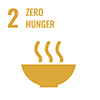




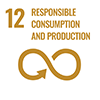

Related journals
This journal is part of our Information & knowledge management collection. Explore our Information & knowledge management subject area to find out more.
The Bottom Line
The Bottom Line is a multidisciplinary international leading journal publishing cutting-edge research that explores...

VINE Journal of Information and Knowledge Management Systems
The VINE Journal of Information and Knowledge Management Systems explores information and knowledge from a content...
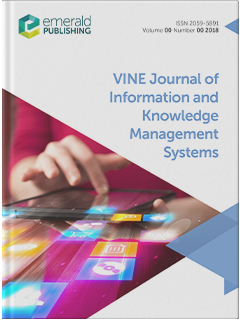
Information and Computer Security
Information and Computer Security aims to cover the human aspects of security, looking at the impact of user and...
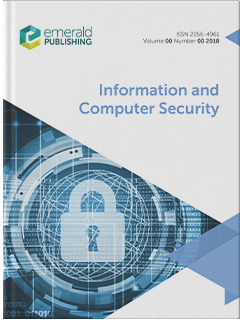
Journal of Information, Communication and Ethics in Society
Journal of Information, Communication and Ethics in Society promotes thoughtful dialogue regarding the wider social and...
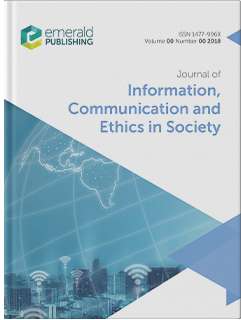
Journal of Intellectual Capital
The Journal of Intellectual Capital publishes the latest rigorous research on creating, identifying, managing, measuring...
